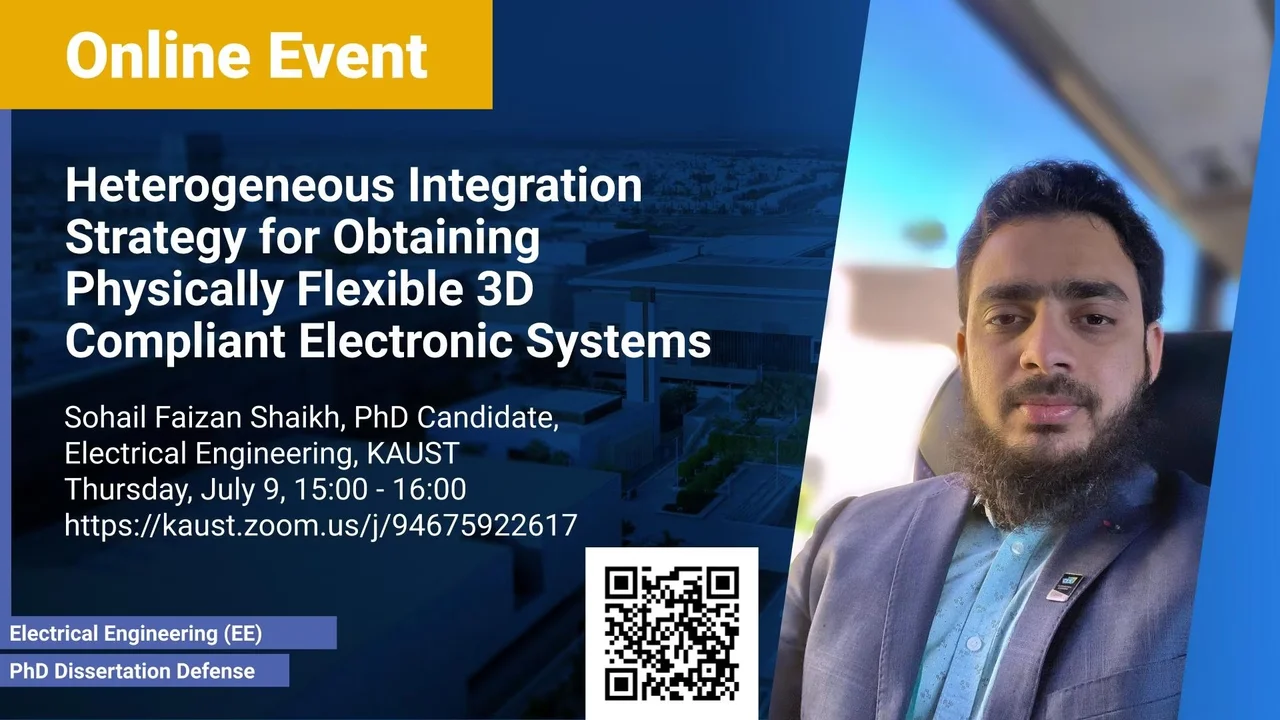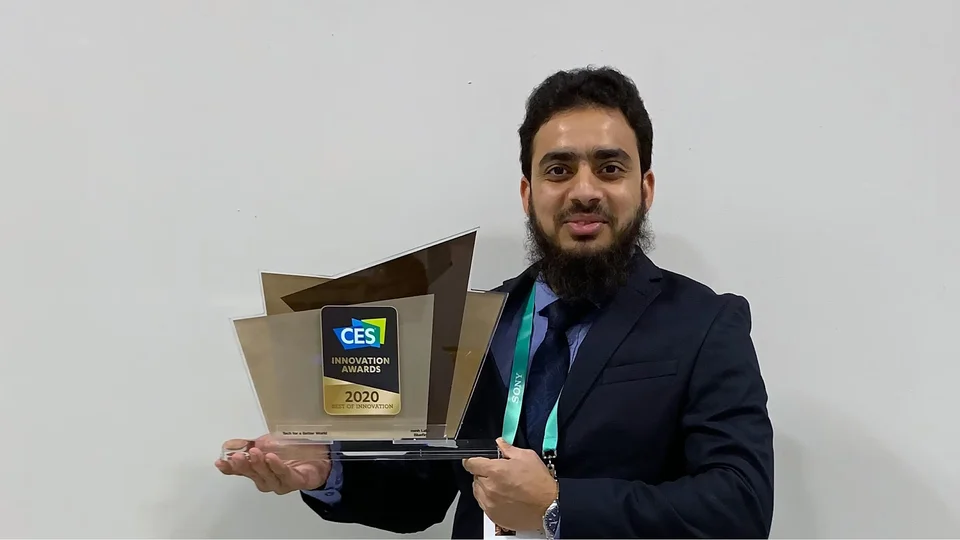
Heterogeneous Integration Strategy for Obtaining Physically Flexible 3D Compliant Electronic Systems
In this thesis, we present a pragmatic heterogeneous integration strategy to obtain high-performance 3D electronic systems using existing CMOS technology. Critical challenges addressed during the process are; reliable flexible interconnects, maximum area efficiency, soft-polymeric packaging, and heterogeneous integration compatible with current CMOS technology. First, a modular LEGO approach presents a novel method to obtain flexible electronics in a lock-and-key (plug and play) manner with reliable interconnects. It includes a process to convert standard rigid IC into flexible LEGO without any performance degradation with a high-yield. For the majority of healthcare and environmental monitoring applications, a sensory array is essential for continuous spatiotemporal activity recording. Here we present an ultra- high-density sensory solution (1 million sensors) as an epitome of density and address each of the associated challenges. A generic heterogeneous integration scheme is devised to obtain a physically flexible standalone electronic system using 3D-coin architecture. Lastly, a feather-light non-invasive ‘Marine-Skin’ platform to monitor deep-ocean monitoring is presented using the heterogeneous integration scheme. Electrical and mechanical characterization establish the reliability, integrity, robustness, and ruggedness of the processes, sensors, and multisensory flexible system.
Overview
Abstract
Electronic devices today are an integral part of human life thanks to state-of-the-art complementary metal-oxide-semiconductor (CMOS) technology. The progress is mainly attributed to miniaturization driven by Moore’s Law. Further advancements in electronics are under threat from physical limits in dimensional scaling and hence new roadmaps for alternative materials and technologies are established. Furthermore, the current era of the Internet of things (IoT) and Internet of Everything (IoE) has broadened the horizon to a plethora of unprecedented applications. One of the most prominent emerging fields is flexible and stretchable electronics. Despite the advances in this emerging field, there remain the unaddressed challenges of matching the performance of the status-quo, packaging, interconnects, and lack of pragmatic integration schemes to readily complement existing state-of-the-art technology.
In this thesis, we present a pragmatic heterogeneous integration strategy to obtain high-performance 3D electronic systems using existing CMOS technology. Critical challenges addressed during the process are; reliable flexible interconnects, maximum area efficiency, soft-polymeric packaging, and heterogeneous integration compatible with current CMOS technology.
First, a modular LEGO approach presents a novel method to obtain flexible electronics in a lock-and-key (plug and play) manner with reliable interconnects. It includes a process to convert standard rigid IC into flexible LEGO without any performance degradation with a high-yield.
For the majority of healthcare and environmental monitoring applications, a sensory array is essential for continuous spatiotemporal activity recording. Here we present an ultra-high-density sensory solution (1 million sensors) as an epitome of density and address each of the associated challenges.
A generic heterogeneous integration scheme is devised to obtain a physically flexible standalone electronic system using 3D-coin architecture. This 3D-coin architecture hosts sensors on one side, readout circuit and data processing units embedded in the polymer, and the other side is reserved for antenna and energy harvester (photovoltaic). This thin platform (~ 300 µm) has achieved a bending radius of 1 mm while maintaining reliable electrical interconnection using through-polymer-via (TPV) and soft-polymeric encapsulation. This coin integration scheme is compatible with existing CMOS technology having the potential of ready adoption for large-scale manufacturing.
Lastly, a feather-light non-invasive ‘Marine-Skin’ platform to monitor deep-ocean monitoring is presented using the heterogeneous integration scheme. Electrical and mechanical characterization establish the reliability, integrity, robustness, and ruggedness of the processes, sensors, and multisensory flexible system.
Brief Biography
Sohail Faizan Shaikh is a doctoral candidate of MMH Labs in Electrical Engineering at KAUST. He graduated with a master’s degree in Biomedical Engineering from the Indian Institute of Technology (IIT) Hyderabad, India, in 2015, after securing bachelors in Electronics and Telecommunication. His Ph.D. research is about Heterogeneous integration strategies for compliant stand-alone 3D electronic systems for IoT/IoE applications specially focused on bio-interface, healthcare, and harsh-environment applications. He will join the world’s largest semiconductor research consortium, Interuniversity Microelectronics Centre (imec) in Belgium this summer.
He spent Spring 2019 at Harvard University as a Visiting Fellow where he worked on soft-robotics and dielectric actuators integration with flexible sensors. His research articles has been highlighted in internation media and technical magazines (Forbes, The Quint, Fox News, Daily Mail, Nature Middle East, IEEE spectrum, and many more). He has received Best of Innovation Award at the 2020 Consumer Electronics Show (CES), Edison AwardsTM (The Gold) and has presented product prototypes at CES, SXSW, and IDTechEx. He received the King Abdullah Fellowship for doctoral studies in 2015, the Academic Excellence Award in 2014 at IIT Hyderabad, a fellowship from MHRD-India for his masters in 2013, and a Merit-cum scholarship for from the government of India for undergraduate program in 2008. He is a student member of the IEEE and the Electron Devices Society.
He may be reached at sohailfaizan.shaikh@kaust.edu.sa.
